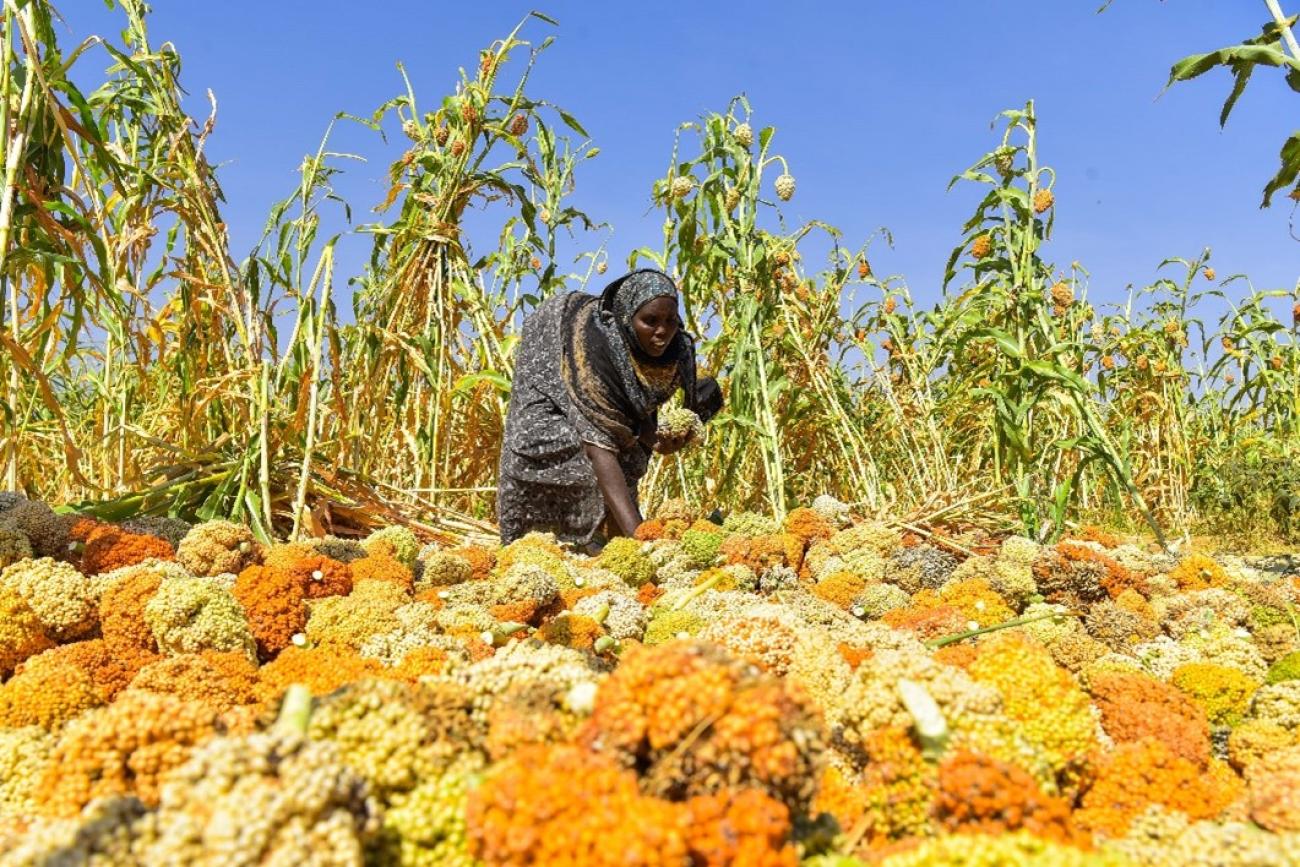“My life was once filled with misery and hunger, and I witnessed many deaths in my neighborhood. But now, thanks to this irrigation project, I’m seeing a complete transformation in my community,” says Kin Johead, a 40-year-old mother of five and a beneficiary of WFP’s Cillan Irrigation Project in Ethiopia’s Somali region. Kin is determined to do everything she can to ensure the project’s continued success.
In the arid Somali Region, where droughts and food insecurity are persistent challenges, the World Food Programme (WFP) has launched two groundbreaking irrigation projects that are already improving food security and changing lives.
Cillan, a desert-like lowland in the Shebelle zone, suffers from severe water scarcity, affecting both the community and their livestock—central to their livelihoods, economy, and culture.
“Like many in the Somali Region, the Cillan community has endured the devastating effects of climate change. Located in Ethiopia’s arid and semi-arid lands, they face recurring droughts and occasional floods,” explains Peter Weke, Programme Officer at WFP’s Gode sub-office.
Launched in 2022, the Cillan Solar-Powered Irrigation Scheme tackles climate-related challenges by introducing innovative, sustainable water solutions to boost agricultural productivity.
“For years, Cillan relied on free food assistance from WFP and other agencies. But now, with this irrigation project, they can grow their own food instead of waiting for aid,” says Weke.
Initiated with a grant from the Government of Denmark, the project focuses on building irrigation infrastructure—including canals, dikes, and water catchment systems—alongside cost-effective solar-powered pumps.
Community Engagement
From the start, the project prioritized community involvement. Thirty households in Cillan, organized as a cooperative union, actively participate in planning and decision-making, ensuring the project meets their food security needs.
This participatory approach fosters ownership and responsibility, enabling the community to sustainably produce enough food for themselves and their livestock—a cornerstone of their economic and social life.
Impact on Food Security
Since the irrigation system was implemented, the community has shifted from dependency to self-sufficiency, embracing the principle of “produce what you eat and eat what you produce.”
A river that once flowed unused through their village has now become a lifeline. Farmers grow onions, bananas, and chili peppers alongside staple crops, diversifying their diets and creating new income streams.
Building Climate Resilience
As climate variability continues to threaten agriculture, the Cillan project has proven vital in mitigating the effects of erratic rainfall. By providing a reliable water source, it allows farmers to cultivate crops year-round, strengthening their resilience against climate shocks.





